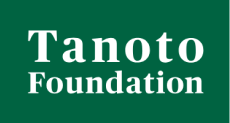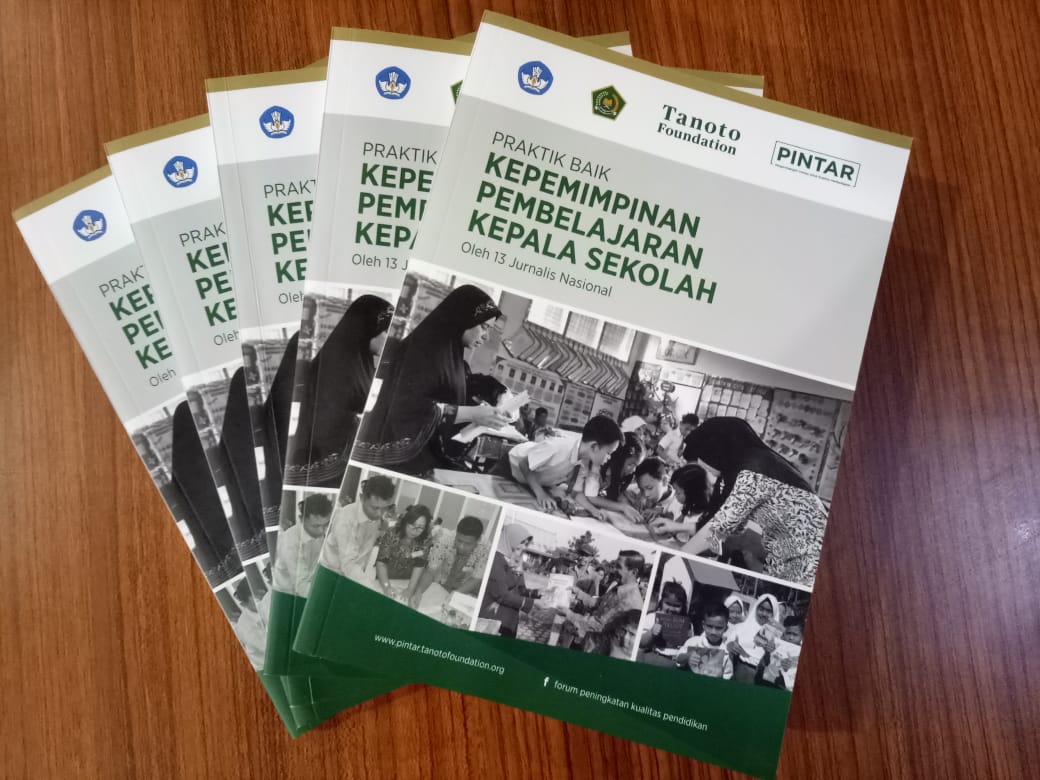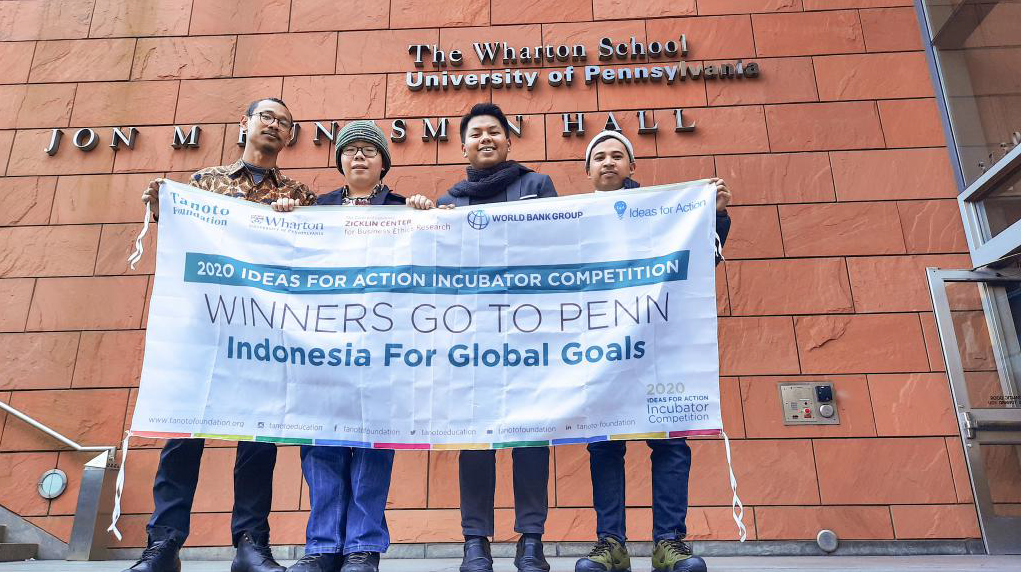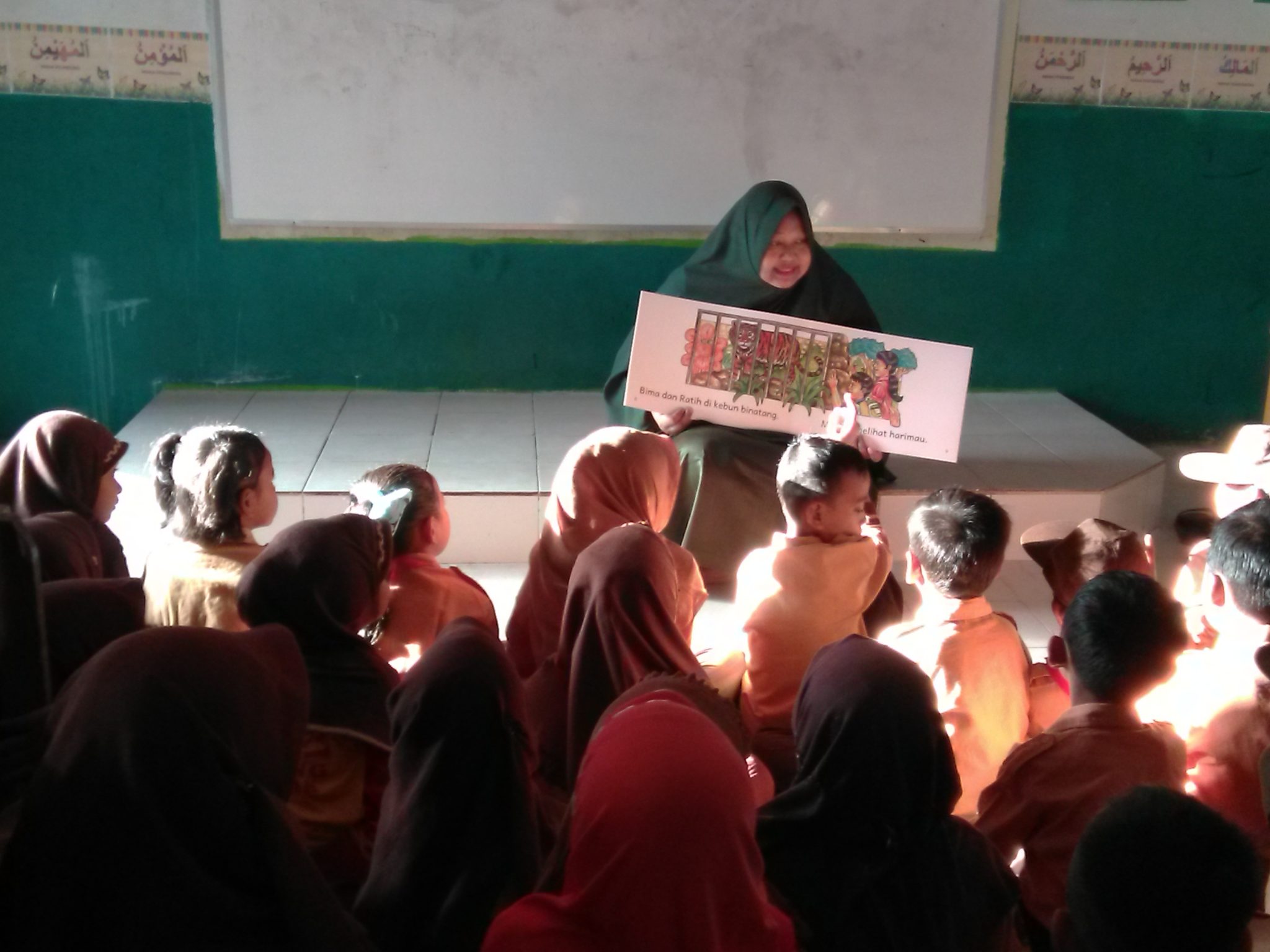The role of principals as leaders in their schools’ learning process is an important key to advancing schools in Indonesia in the new ‘Freedom of Learning’ era. As leaders, principals must ensure that teachers receive the right training to facilitate Freedom of Learning, including the implementation of active learning methods in classrooms. Principals also have to do this transparently, and involve members of their communities in improving the quality of their schools.
This is the focus of Tanoto Foundation’s newly published e-book Praktik Baik Kepimpinan Pembelajaran Kepala Sekolah (Learning Leadership Good Practices for School Principals). Authored by 13 national journalists in Indonesia and published in cooperation with the Ministry of Education and Culture (MoEC) and Ministry of Religious Affairs (MoRA), the book tells the success stories of 13 school principals in the nation who have managed to significantly improve their schools in the last few years.
School Leaders Are Key to Learning Changes
In 2018, Tanoto Foundation, an independent family philanthropy organisation founded by Sukanto Tanoto and Tinah Bingei Tanoto in 1981, collected data from 28% of general schools and religious schools (madrasah) who are partners through the PINTAR Program.
“The data shows that only 32 per cent of the principals implement learning leadership. This correlates with a similar low implementation of active learning by teachers at those schools – only 22 per cent of teachers carry it out,” said Makinuddin Samin, Tanoto Foundation’s Principal Leadership and Management Specialist.
The schools were also found to be not doing enough in terms of encouraging students to adopt literary habits and involving the public in school programs. With a lack of financial transparency, the public also had a low level of trust towards the schools.
Recognising the issue, Tanoto Foundation has organized numerous training and mentoring programs for principals, teachers, school supervisors and committees in 440 schools and madrasah to facilitate changes in learning and teaching. These trainings focus on encouraging school leaders to implement leadership based on the Indonesian government’s School-Based Management framework, which includes adopting active learning methods. The teachers are also trained on how to consistently implement active learning in their classes using the MiKiR (Experience, Interaction, Communication and Reflection) method, and how to encourage students to develop reading habits.
Results have so far been encouraging. According to our own School Monitoring Application (APS, Aplikasi Pemantauan Sekolah), 81.4 per cent of school and madrasah principals are now implementing active learning leadership, compared to just 32 per cent before.
“Active learning is now being implemented in 63 per cent of schools, an increase from the prior rate of 22 per cent. Students are facilitated to do more experiments, observations, presentations and reflections in order to improve their learning experience. This is what is expected by our Minster of Education, Nadiem Makarim, as students are encouraged to actively experience, do, observe and discover,” Makinuddin explained.
Principal Case Studies
There are 13 principals featured in the book because of their efforts to implement changes in learning at their schools. One of them is Robingah, Principal of SDN 2 Kalilumpang in Kendal Regency, Central Java. Even though her school is located in a remote area in the middle of a rubber plantation, and lacks a library, she has managed to promote literary culture among her students, who are now used to reading two to four books per week.
Some of Robingah’s initiatives include getting parents involved in acquiring their children’s favourite reading books to compensate for the lack of reading material at school. She also established reading corners in each classroom to make students feel they have a comfortable place to read. The school also provides a reading clinic to help students who have trouble with reading, and ensures that all teachers receive training in literary culture, and that they accompany the students to read in class.
“We’ve also created a literary parenting activity where parents are required to read with their children at home. This is reciprocal strengthening both in school and at home,” said Robingah, who has been commended as Kendal’s Second Best Principal because of her efforts.
Gunanto, Principal at Ibtidaiyah Nahdlatul Ulama Madrasah (an Islamic primary school) in Balikpapan has managed to position his school as one of the city’s most sought after education institutions. In 2019, the school had to turn away applicants wishing to enroll in the school, due to class capacity limitations, This was in total contrast with enrollment interest in 2017, as all applicants were accepted in that year, who fit into one classroom.
“My priority was to manage the madrasah in a transparent and participative manner; especially in convincing the teachers, parents and public to get involve in the school’s programs. When trust is secured, change becomes easier. Parents are more than willing to renovate school buildings and to provide learning and reading materials in classes,” explained Gunanto, who was awarded as Balikpapan’s Top Madrasah Principal in 2019.
A good reference
Supriano, MoEC Director-General of Teachers and Education Workforce, expressed appreciation to Tanoto Foundation and the PINTAR Program for training and mentoring many principals, teachers and school committees to work in tandem to improve learning quality.
Tanoto Foundation’s support means a lot in terms of helping the government to accelerate education quality improvement, he said.
“I recommend the book as a reference for principals in promoting more pioneering teachers, greater public participation, and in enabling our schools to better educate students,” said Supriano.
Download “Praktik Baik Kepimpinan Pembelajaran Kepala Sekolah” for free here: http://bit.ly/KepemimpinanPembelajaran





